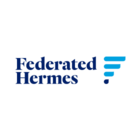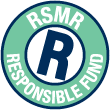


Global

sriServices SRI Style - Sustainability Select
Launched in December 2017, the Federated Hermes Impact Opportunities fund is benchmarked against the MSCI AC World IMI (net) with a performance target of producing risk adjusted returns of 500 basis points per annum ahead of the MSCI ACWI IMI over a rolling 5-year period.
The fund focuses on constructing a concentrated, high active share portfolio of companies where the impact can be ascertained using 9 impact themes and over 20 impact KPIs. All stocks held must be able to be linked to one or more of the 17 UN SDGs with the 169 underlying targets of the UN SDGs also used.
Click here to read the Federated Hermes approach to ESG investing.
Ingrid joined the international business of Federated Hermes in February 2020 with many years of experience in financial services. As Head of Impact Investing, she is responsible for the construction and management of the portfolios within the Impact Opportunities strategy. Her experience spans asset management as well as capital and private markets. She joined from PDM Capital where she was managing a thematic equity fund. Prior to this, she was at Jupiter Asset Management as Fund Management Director where she managed the EMEA portion of the Global Managed Fund and co-managed Jupiter’s flagship emerging markets fund. She started her career in 1997 at Lazard & Co where, for six years, she was a generalist CEE and European equities analyst. Ingrid was included in Citywire’s first ever global compilation of the 1,000 top fund managers in the world. Ingrid is a Non-Executive Director of Fair4All Finance, founded with dormant asset money solely to create positive impact by promoting financial inclusion in UK. She is also an Investment Committee Board Member at GFS. Ingrid holds a degree in Italian and Business Studies from University College London, CISI Diploma in Investment Regulation & Compliance and is fluent in four languages.
Please click on the 'Fund Data' button above.
The investment process follows seven distinct steps:
Impact assessment – Companies are assessed to see if they provide solutions to sustainable development challenges as identified by the 17 UN SDG’s. The team have identified 9 impact themes for the portfolio with each company held linking to one or more UN SDG. The nine impact themes are energy transition, circular economy, water, health and wellbeing, education, financial inclusion, future mobility, food security and impact enablers.
Four key impact dimensions are used to understand a company’s impact, namely:
A proprietary impact database has been created which provides accountability and traceability for their investment, enabling them to trace the impact and giving clients the ability to report on how their capital has contributed to SDGs. There are 23 metrics used in the database which are then linked broadly with the 9 investment themes. Each of the metrics is assigned to either operations or solutions. Operations are quantifiable and calculated for every company (e.g. scope 1 and scope 2 emissions, water use, waste generated). These are the areas that typically a company would report on. Solutions are up to the discretion of the team and are only calculated if relevant and refer to the outcomes which each business will enable. The data output can be displayed in two ways, firstly aggregated across companies held or secondly via the impact opportunities fund exposure in isolation.
In terms of the quality and consistency of the data, no two companies are the same with much of the data necessary not required to be published by the companies held. To mitigate this, direct operational data supplied by the company is used to understand how many units of product sold or hours of service has been delivered. Gathering this operational data is crucial, but also the most time sensitive part of the process, to ensure accurate and reliable data is used.
A Quarterly Impact Report is produced which comprises both quantitative and qualitative aspects of delivering impact at the fund, theme and company level, as well as including case studies of specific companies.
Long-term sustainability validation – The team will only invest in companies that have been deemed to have strong ESG credentials. Working alongside the stewardship team EOS (Equities Ownership Services), the team are able to monitor how companies are delivering their impact and improving their ESG characteristics.
Engagement – Stewardship is an integral part of Federated Hermes with the Stewardship Team EOS. Engagement allows for positive change to be driven with board and management held to account for delivery. Secondly, engagement allows for a positive feedback loop that allows the team to better appraise their investment thesis overtime.
A considerable amount of time and resource has been deployed into the creation of the proprietary impact assessment that forms part of the overall investment process. Due to this, the management team are able to clearly articulate how the underlying companies in the fund are having a demonstrable impact within the nine impact themes and are able to stand with conviction behind the output (forming part of the Quarterly Impact Report). In addition to impact, engagement is an important part of the process using the resource within EOS.
By its nature, the fund is high conviction, with increased exposure to small and mid-caps compared to the index. Consequently, the fund is positioned to provide better performance when markets are favouring growth and may lag in value driven markets. The proprietary impact calculator used by the team is a real differentiator for this strategy focusing on quantifying the impact per dollar invested. This means peers can be compared within impact investing and provides a global equity option where the target investor is looking for clear demonstrable evidence of a positive impact.
Important Notice
This document is aimed at Investment Professionals only and should not be relied upon by Private Investors. Our comments and opinion are intended as general information only and do not constitute advice or recommendation. Information is sourced directly from fund managers and websites. Therefore, this information is as current as is available at the time of production.
Rayner Spencer Mills Research Limited is a limited company registered in England and Wales under Company. Registration Number 5227656. Registered Office: Number 20, Ryefield Business Park, Belton Road, Silsden, BD20 0EE. RSMR is a registered trademark.